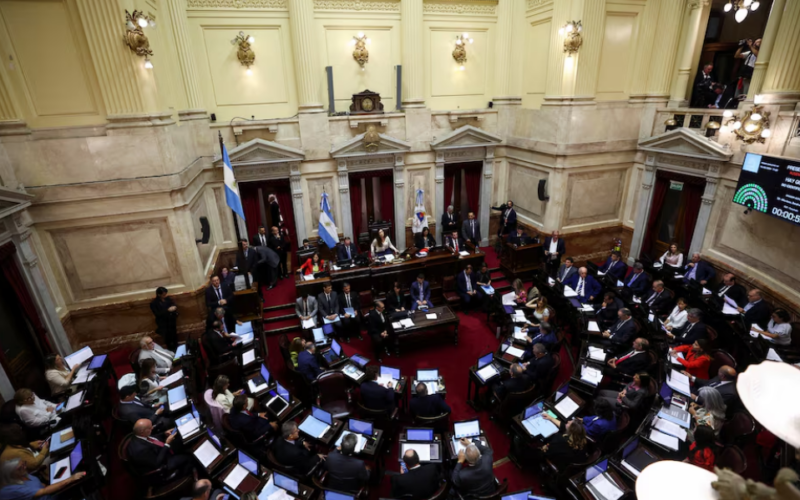Argentina’s Senate delivered a significant blow to President Javier Milei’s economic agenda by voting to reject his comprehensive “mega decree” of reforms aimed at addressing the country’s economic challenges.
Milei, an unconventional economist leading a minority party in Congress, assumed office in December and swiftly utilized his presidential decree powers to implement a wide-ranging set of measures, spanning from privatizations to labor reforms.
The rejected decree, initially comprising over 600 provisions, failed to garner Senate approval in a vote of 42-25, with four abstentions. However, its definitive dismissal hinges on a similar outcome in Argentina’s lower house, where Milei’s party also holds a minority.
This legislative setback marks a second defeat for Milei, following a prior stalling of proposed reform initiatives by lawmakers last month.
Opposition Senator Martin Lousteau underscored the constitutionality concerns driving his vote against the decree, describing his stance as straightforward.
The decree, issued shortly after Milei’s assumption of office, marked the outset of his bold strategy to address Argentina’s longstanding economic challenges, notably including a more than 50% devaluation of the local peso.
While the government’s initiatives have shown some positive impact on fiscal and trade imbalances, they have simultaneously exacerbated economic hardships for many citizens. Notably, annual inflation soared to 276% last month, with poverty levels surging to encompass 57% of the population.








